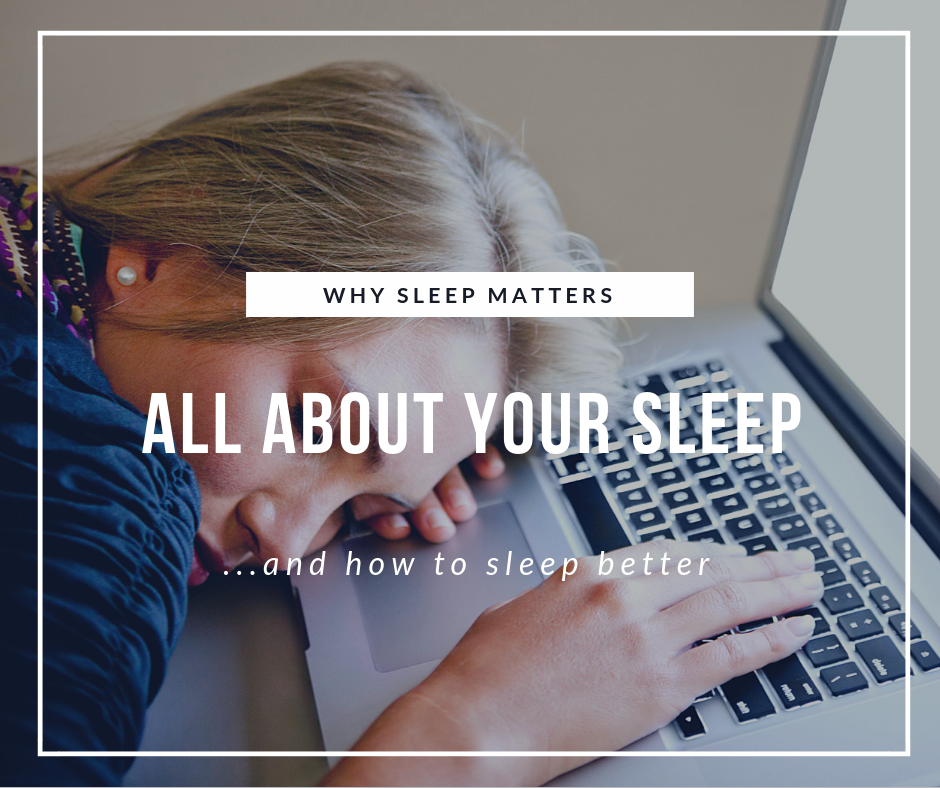Here’s why you should be more committed to sleep. Especially for your weight loss goals.
Do you sleep less so you can squeeze a few more hours into your day? Does it happen frequently? This is the reality of so many busy people, struggling to get enough sleep each night — or having trouble winding down enough to get quality sleep.
The truth is that both matter: the amount of hours you sleep AND how well you sleep once you hit that pillow and your eyes close for the night. Let’s talk about why this is the case and how you can improve your sleep to also improve your health and weight loss goals!
Why Sleep REALLY Matters
You’ve probably heard that sleep is really important, but are you actually making it a priority?
Bottom line, when you don’t sleep enough for an extended period of time (as in, more than one night), your biochemistry changes. Your body stops running through the processes it engages in during sleep that have huge benefits, including:
- Strengthened memory and learning of new skills: Lack of sleep can impair learning, and sleep has a huge role in consolidation of memory.
- Prevention of inflammation: Less than six hours of sleep a night can lead to inflammation in the body, which is linked to diabetes, heart disease, arthritis, and early aging.
- Healthy body weight: Research has shown that regardless of how much weight is lost, those who get more sleep are able to lose more fat. Plus, lack of sleep can lead you to feel more hungry. The same areas of the brain that control sleep also control hormones affecting appetite. Sleep more to help with weight loss? Umm, yes please!
- Damage repair: A full night’s sleep is divided into four stages. In the third stage of sleep, tissue growth and repair (such as repair of muscles) happens. Not getting enough sleep cuts that process short.
- Lower stress levels and better heart health: Getting enough sleep can help reduce depression and stress levels, which can promote healthy blood pressure and cholesterol levels.
- Longer lifespan: Basically, sleep better, live better.
Now, you might be wondering: how much sleep do I actually need?
Most people need around eight hours of sleep to be fully rested and functioning optimally. This could be a little more or less depending on the person, but it’s a good baseline to start.
(Those who say they do just fine on 4-6 hours of sleep likely don’t realize they’re chronically sleep-deprived and would actually do much better with more sleep.)
The Road to Better Sleep: Getting Started
Ready to improve your sleep routine? Start by finding out how you’re doing now:

- Keep a notepad or piece of paper on your nightstand and note the time you officially go to bed (and not just sitting in bed on your phone — write down when you’re actually turning the lights off and laying down for sleep).
- Then, note what time you wake up. If you woke up at any points during the night, try to note those times and how long it took you to fall back asleep. You might also note whether or not your sleep felt restful.
- Now, you can officially schedule in your time to sleep. Use your phone, Outlook, or a physical calendar to schedule a bedtime that gets you a full eight hours from the time you go to sleep to when you wake up, and make sure your alarm is set for that time.
Treat it as an Experiment
Note that this process might take a few weeks and is a time to experiment with what works.
If you notice yourself naturally waking up feeling good before your alarm goes off in the morning, you might not need as much sleep. But it you’re still feeling groggy, it might mean you need to schedule in time to sleep 8.5 hours, and so on.
Keep experimenting until you find the time length that’s right for you. Your body and health will thank you! And of course, I’m here and keen to help you so feel free to send me quick note.
In Part 2, we’ll talk about creating your perfect wind down routine, including the best times to eat before bed, to make sure you have optimal sleep.




